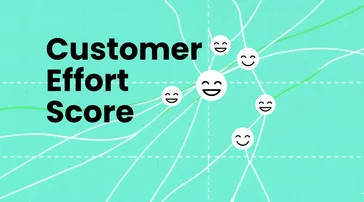4 min read
Listen and understand your customers. Win them at any stage of their journey.
cx Platform
Customer care is no longer just a department or a process—it is the foundation of every successful business. In today’s competitive landscape, companies that invest in building meaningful customer relationships set themselves apart, foster loyalty, and achieve long-term growth.
In this article, we will define what customer care truly means, explain why it is more important than ever in 2025, and outline best practices that make it a cornerstone of modern customer experience strategies.
What Is Customer Care?
At its core, is about building strong, lasting relationships with your customers by addressing their needs, concerns, and expectations. Unlike customer service, which typically focuses on resolving transactional issues, customer care emphasizes creating genuine emotional connections and ensuring customers feel valued throughout their journey with your brand.
Key elements of effective customer care include:
Personalizing interactions based on customer preferences and history.
Proactively addressing potential customer pain points.
Going beyond expectations to deliver customer satisfaction and delight.
For more on how to design experiences that build loyalty, see our guide to customer experience strategies.
The Benefits of Customer Care
Investing in top-tier customer care delivers measurable advantages for businesses of all sizes.
Enhanced Customer Loyalty
Companies that prioritize customer care consistently see higher retention rates and greater customer lifetime value.Improved Brand Reputation
Positive customer experiences generate strong word-of-mouth marketing and reviews, which remain highly influential in buying decisions.Increased Revenue
Loyal customers are more likely to make repeat purchases and adopt new offerings from brands they trust.Competitive Advantage
In crowded markets, superior customer care differentiates your brand, positioning it as people-first rather than profit-first.Higher Retention Rates
Customers who feel cared for and valued are significantly more likely to return. Learn more in our article on customer retention strategies.
Best Practices for Effective Customer Care
To maximize these benefits, businesses should embed customer care practices into their broader customer experience strategies.
1. Prioritize Communication
Clear, transparent, and empathetic communication builds trust. Train your team to:
Actively listen to customers.
Use positive, respectful language.
Keep customers informed of updates and resolutions.
2. Personalize Every Interaction
Leverage data-driven insights to tailor communication and solutions to individual customer needs. Personalization signals recognition and respect.
3. Be Proactive, Not Reactive
Anticipate customer needs before they become problems. For example:
Send reminders for subscription renewals.
Provide tutorials or guidance to prevent confusion.
4. Empower Your Team
Equip your staff with the tools, authority, and training they need to resolve issues effectively. Empowered employees deliver faster, more satisfying solutions.
5. Gather and Act on Feedback
Use structured feedback tools such as surveys and microsurveys to understand customer expectations. Acting on feedback shows customers their input is taken seriously. Explore more in our guide on how to design effective customer surveys.
6. Embrace Technology
Implement CRMs, analytics, and automation tools to streamline customer care. Use metrics such as the Customer Effort Score (CES) to identify and remove friction from the customer journey.
7. Measure and Refine
Track customer care performance using KPIs such as:
Customer Satisfaction Score (CSAT)
Net Promoter Score (NPS)
First Response Time (FRT)
For more details, see our article on customer service metrics.
Examples of Excellent Customer Care
Proactive Outreach: A SaaS provider identifies low engagement with a feature and sends personalized tutorials to help users adopt it effectively.
Recognition of Loyalty: A retail brand surprises long-term customers with exclusive discounts or early access to collections.
Swift Resolution: An airline compensates delayed passengers immediately with vouchers, demonstrating accountability and care.
The Role of Feedback in Customer Care
Customer feedback remains the backbone of effective care. In 2025, real-time tools such as Responsly’s customer survey platform make it possible to gather insights continuously and adapt strategies quickly. Businesses that act on feedback show customers their voices matter, strengthening trust and loyalty.
Conclusion
Customer care is not just an operational function—it is a strategic investment that drives loyalty, enhances reputation, and ensures sustainable growth.
By prioritizing communication, personalization, and continuous feedback, businesses can transform customer care into a competitive advantage.





